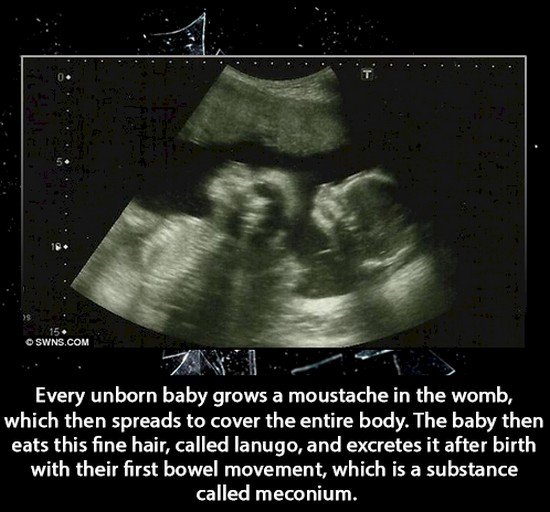
Nixon tapes is a collection conversations that President Richard Nixon secretly filmed over a period three and a half decades. They provide invaluable background information on his administration's decisions and actions. These recordings are a valuable tool for historians and scholars interested in American politics and the Nixon presidency.
The Nixon White House Tapes contain approximately 3700 hours worth of audio recordings. The tapes include recordings from five locations, including Camp David's Oval Office, Cabinet Room (with Aspen Lodge), Camp David, Camp David, Camp David, the White House Telephones, and the Cabinet Room. A tape usually lasts around six hours and contains several conversations. There are also tapes of up to 100 individual conversations. This means that researchers may have to search through three or more parts of the tape to find the conversation they are looking for.
Access to these tapes is possible only if researchers have access to the National Archives at College Park, Maryland. Researchers can make copies free of charge, but must bring a blank copy. Without a special digital recording tool, it may be difficult for you to hear the sounds on the original tapes. A trained ear and a good understanding of the motivations of the people involved will help you to successfully use these documents.

Researchers who do not have access to the National Archives can purchase reproductions from vendors. These products are expensive. In addition, the quality of these products is not good. Nixon researchers should be cautious when using these materials.
Researchers must first find out where the recordings were made in order to understand Nixon Tapes. These recordings were made at Camp David, the White House, Oval Office, Cabinet Room, White House private office, White House telephones. For the most part, these recordings are kept in chronological order, and can be searched for specific topics.
Nixon's secret records are among the most complicated and controversial presidential records ever made in United States history. They provide a wealth information on Nixon's decision-making process and personal biases as well as his motivations. Many conversations recorded on these tapes were interwoven with other recordings made the same day. Some of the tapes also include recordings from other locations.
These recordings are difficult to understand and researchers should be prepared for a lot of time. It is important to understand the reasons Nixon kept these recordings secret. Nixon tried manipulating records during Watergate to conceal his complicity.

President Nixon's secret recordings reveal his motives, biases, and emotional motivations in his decisions. They were his most significant records. His resignation from office was largely based on the evidence in his tapes.
Although Nixon's tapes are not available in transcripts, archivists worked diligently to create a detailed tape topic log to aid researchers. These logs outline the subjects of every conversation, detailing the names and dates of participants, the time and date of each conversation, and the archivist's interpretation of the tape's content.
FAQ
How does the brain control the functions of your body?
The brain relays messages to other parts of the body to ensure their functionality. The brain controls everything that happens in your body. It tells the stomach to digest food, and the lungs to breath air. It also tells your legs and arms to move.
Your brain is made up of billions upon billions of nerve cells that are connected together in groups called neuronal groups. Neurons communicate by sending electrical signals, called action potentials, on axons. Each neuron has its own cell membrane around its nucleus. The cell membrane houses channels that allow ions, such as potassium and sodium, to enter and exit the cells. Ion movement is what causes the neurons to fire.
When a neuron is activated, neurotransmitters release chemicals into the space between it and the next neuron. Neurotransmitters bind with receptors on the second nerve cell, opening ion channel channels to allow ions in and out. In turn, the second neuron also fires.
Neurotransmitter releases occur when a presynaptic neurons receives an input from another neuron. An impulse travels along a synaptic link between the two neuron. The transmitter binds directly to the receptors in the postsynaptic nervous neuron, and triggers the firing.
Neurotransmitters are important for communication within the nervous system. They are also responsible for coordinating activity between various parts of the brain.
Do you wonder how much trash is produced each day across the globe?
The United Nations states that an average person produces more than 2.5 pounds of waste per day. That's over 25 billion pounds of garbage each year!
Most of the trash ends up at incinerators and landfills. But, what happens to those dumpsters? Where does all that rubbish go?Well, most of it gets shipped out of the country. It then gets dumped in foreign countries, polluting their ecosystems. However, now we know where all that trash goes. Mike Sexton is his full name. He is the founder of Waste Watchers. He watches over trucks that transport trash across North America. He then reports back to us on what happens next.
Sexton says he finds his job very satisfying. "We've got a lot of fun," he told CNN. "You know, we see these big rigs come through town, and we'll follow them. "Sexton started following truck driver almost 20 years back.
"It's all I felt," he stated.
He loved the story of the driver who pulled into an abandoned gas station near Los Angeles. Sexton remembered, "The man was looking for somewhere to put the load." "He drove down the road and saw this building. So he backed up and went inside. "There were 2 large containers that had been rolled off, and they were full of stuff. The man removed everything from the truck and started to load it again. He then looked around and decided to load everything. There were many old tires, furniture, rags and mattresses. "It was a complete mess. But it was cleaned out before he came. There wasn't any trash."
Why did this happen? It's because this area used to be a recycle center. People would drive from all over the country to recycle their trash. Sexton explained that people would bring home their household items, and then take them to the building. After they were done, they would dispose of the empty containers.
This can happen hundreds of times a week. This can happen hundreds of times a week.Eventually, the truck becomes so overloaded with junk that it stops running. The truck eventually stops running and the owner decides that it is time to get rid of the vehicle.
But, this isn't the only problem that our planet is facing.
The majority of these particles are made of small pieces of plastic. Some of these plastics end up in rivers or oceans.
Experts say if nothing changes, we could soon face a global food shortage. Experts warn, "If you keep going like you're going," we could soon face a global food shortage. But most people don't seem to be worried, even though scientists are unanimous in warning us that the world is heading towards disaster.
What is the most mysterious place on earth?
Antarctica is the world's most mysterious place on Earth.
Why do we find this place so intriguing? Because it is unlike any other spot on Earth.
It is isolated, remote, and very hard to visit. But there is more to this site than meets the eye.
You'll also find the strangest species of wildlife in this natural wonder.
So let's explore how this remarkable destination became famous for its mystery.
Antarctica: The South Pole
Antarctica is not known by anyone. Others believe it means "land with ice". Others believe it comes out of Greek mythology.
Antarktis was an ancient Greek name that was given to the island where Zeus and his twin brothers, Zeus. One of the twins was said to have been born in winter. Therefore, the name antarctic.
Others believe that the name is a combination of the Greek words anti and tropos which mean against and turn. This would mean that the land was turned away by the sun.
Whatever the reason, Antarctica has always held a special fascination for people.
It is also the lowest, windiest continent, driest, and highest. There are no trees, plants, or animals here because it is too cold.
Yet, this frozen wasteland is alive.
Here, 90 percent live of all species of living things. Here are approximately 50% of all the animal and plant species in the world.
What is it that makes Antarctica so unique? Here, water freezes and becomes ice instead of evaporated into the air.
This causes large ice masses to rise above the ground.
These glaciers are responsible for covering 80% of the continent. They are growing in size every year.
The Antarctic ice sheet has grown 60ft since 1960.
The sea level could rise to 200 feet if the melting continues. This could lead to massive flooding across the globe.
This does not mean that everyone is wrong. Some scientists think global warming might be beneficial. They claim that the melting of ice sheets could accelerate as temperatures rise. This would lead to flooding that removes tons of toxic chemicals and soil from our bodies.
Others, however, warn that this theory sounds almost like a plot for a science fiction film.
Why do actors end up on the blacklist?
As an actor, rejection is much more common than for writers. As an actor, it's likely that you will be rejected a lot. However, it doesn't really matter as you will eventually meet someone who is truly your love.
Actors are usually very talented, meaning they can make a living almost anywhere. Most actors don't care about making money. Actors love acting and storytelling. So if you're an actor, chances are you're going to put yourself out there.
Sometimes you may be told by the audition panel that you are too young, too old, or wrong for the role. You might also lose your audition for a film role. It happens all too often.
You may be criticised once your casting is complete. You may be told that your makeup is too heavy or you are not worthy of wearing it. If you're lucky, you won't even hear negative comments.
Sometimes, you might be criticised for playing a role that isn’t authentic or realistic. Perhaps you play a homosexual man and everyone thinks that you're straight. You could also play a woman with a tendency to cry a lot, even though she's supposed to be tough.
Maybe you are asked to change your vocal chords. Sometimes, they will ask you to sound more like a woman or a man. Most times, though, they want you to sound better.
To ignore criticisms is the best way to respond. Actors often feel like they've failed if they're told they did something wrong. But they're not guilty of anything.
They weren't born with the talents that made them famous. Sometimes they don't fit that bill no matter how hard or if they try.
There are lots of reasons why an actor could get blacklisted. Some people don't like actors. Others feel that actors are lazy. Some actors may be cheaters.
Whatever your reason, it doesn't matter. You won't get blacklisted for trying. There are plenty of roles out there, and you'll find them.
You will eventually succeed if you keep trying.
Statistics
- In fact, according to the American Academy of Ophthalmology, you make 15 to 30 gallons of tears each year, which is insane when you think about it. (romper.com)
- Your mouth makes a lot of saliva every day It might seem like way too much, but your salivary glands typically produce anywhere from 0.5 and 1.5 liters a day, according to a 2009 study published in the Journal of Medicine and Life. (romper.com)
- It might not sound like something that's truly plausible — and it is quite rare — but according to a 2015 study published in the Asian Cardiovascular & Thoracic Annals, it's possible to hurt yourself and even break a rib just by sneezing. (romper.com)
- According to a 2018 study published in Free Radical Biology & Medicine, this is because blood pressure is regulated by our innate circadian rhythm and internal clock. (romper.com)
- You spend about 10% of your time awake blinking (romper.com)
External Links
How To
Hollywood scandals that stunned the entire world
It's shocking to see someone make a name for themselves. It's even more frightening to see them fall from grace.
It is amazing to see how an industry handles its mistakes. We've all heard stories of celebrities who used drugs and alcohol excessively. Some even died young because of it.
But, the worst part? When those stars openly discuss their issues and are ignored by everyone. Last week, that's exactly where we were.
Heath Ledger lost his long and successful career. He overdosed on prescription pills, and after a brief battle with death, he passed away.
His friends and family struggled to accept the loss of his son, while the media blasted him openly.
Heath was once considered to be one of today's most talented actors. His performance in Brokeback Mountain earned him two Academy Awards nominations.
Heath did more than act. He also directed films including A Knight's Tale. Monster's Ball and Iron Man.
Hollywood loved Heath, however he soon grew too big for his good looks. He started to use drugs and drink heavily. Eventually, he went to rehab and came out clean.
After he had gotten sober, he decided to make amends. He produced a documentary called Room 237 that documented the making process of The Shining. It was supposed that it would be released this year but it won't make its debut in theaters until next.
Heath tried many times to get back into Hollywood. Nothing worked. He was actually arrested twice for drug charges.
We're not saying Heath should have been allowed back into show business. But it would have been nice to get some help before things spiralled out of control.
We hope Heath’s story serves as a cautionary tale for others who think they might still be able to have it all.